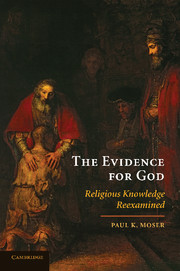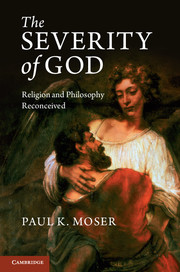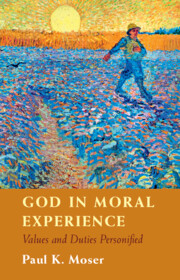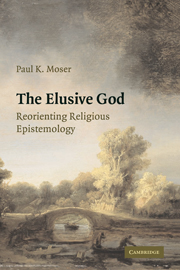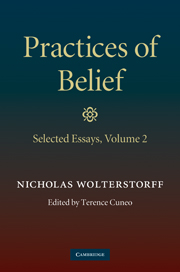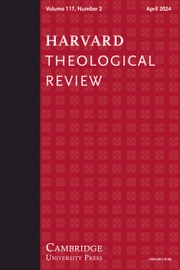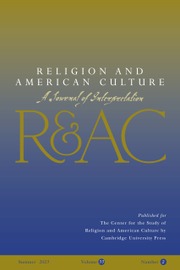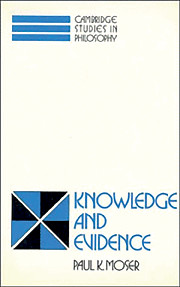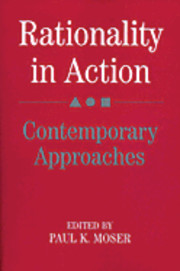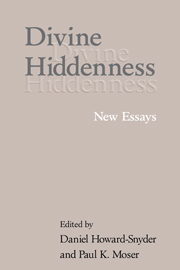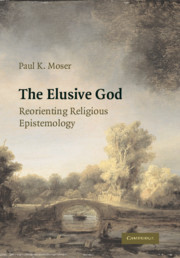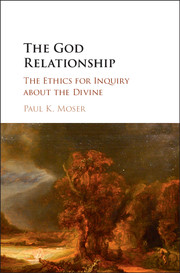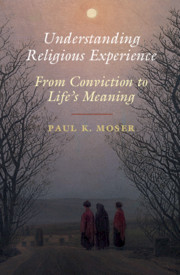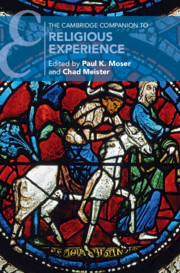The Evidence for God
Religious Knowledge Reexamined
$34.99 (P)
- Author: Paul K. Moser, Loyola University, Chicago
- Date Published: November 2009
- availability: Available
- format: Paperback
- isbn: 9780521736282
$
34.99
(P)
Paperback
Other available formats:
Hardback, eBook
Looking for an examination copy?
This title is not currently available for examination. However, if you are interested in the title for your course we can consider offering an examination copy. To register your interest please contact [email protected] providing details of the course you are teaching.
-
If God exists, where can we find adequate evidence for God’s existence? In this book, Paul Moser offers a new perspective on the evidence for God that centers on a morally robust version of theism that is cognitively resilient. The resulting evidence for God is not speculative, abstract, or casual. Rather, it is morally and existentially challenging to humans, as they themselves responsively and willingly become evidence of God’s reality in receiving and reflecting God’s moral character for others. Moser calls this “personifying evidence of God,” because it requires the evidence to be personified in an intentional agent – such as a human – and thereby to be inherent evidence of an intentional agent. Contrasting this approach with skepticism, scientific naturalism, fideism, and natural theology, Moser also grapples with the potential problems of divine hiddenness, religious diversity, and vast evil.
Read more- Answers in a novel manner the following perennial question in philosophy, theology, and religious studies: If God exists, where can we find adequate evidence for God's existence?
- Offers its new account of evidence for God's existence in contrast with skepticism, scientific naturalism, fideism, and natural theology
- Offers responses to the potential problems for theism found in divine hiddenness, religious diversity, and vast evil
Reviews & endorsements
"There is much in this readable and pointed book that will interest and challenge both philosophers and theologians, and the epistemological reorientation Moser develops has the potential to significantly alter debates in current philosophy of religion, and for the better. --Review of Metaphysics
See more reviews"This is a powerful and highly thought-provoking book, always meticulously argued, but also written with the kind of overt emotional commitment that is rare in contemporary philosophy of religion, particularly that dealing with epistemological questions." --TLS
Customer reviews
Not yet reviewed
Be the first to review
Review was not posted due to profanity
×Product details
- Date Published: November 2009
- format: Paperback
- isbn: 9780521736282
- length: 292 pages
- dimensions: 226 x 152 x 20 mm
- weight: 0.39kg
- availability: Available
Table of Contents
Introduction
1. Nontheistic naturalism
2. Fideism and faith
3. Natural theology and God
4. Personifying evidence of God
5. Diversity, evil, and defeat.Instructors have used or reviewed this title for the following courses
- Reasons for Faith
- Selected Topics: Recent Philosophy: Epistemology of Religious Belief
Sorry, this resource is locked
Please register or sign in to request access. If you are having problems accessing these resources please email [email protected]
Register Sign in» Proceed
You are now leaving the Cambridge University Press website. Your eBook purchase and download will be completed by our partner www.ebooks.com. Please see the permission section of the www.ebooks.com catalogue page for details of the print & copy limits on our eBooks.
Continue ×Are you sure you want to delete your account?
This cannot be undone.
Thank you for your feedback which will help us improve our service.
If you requested a response, we will make sure to get back to you shortly.
×
